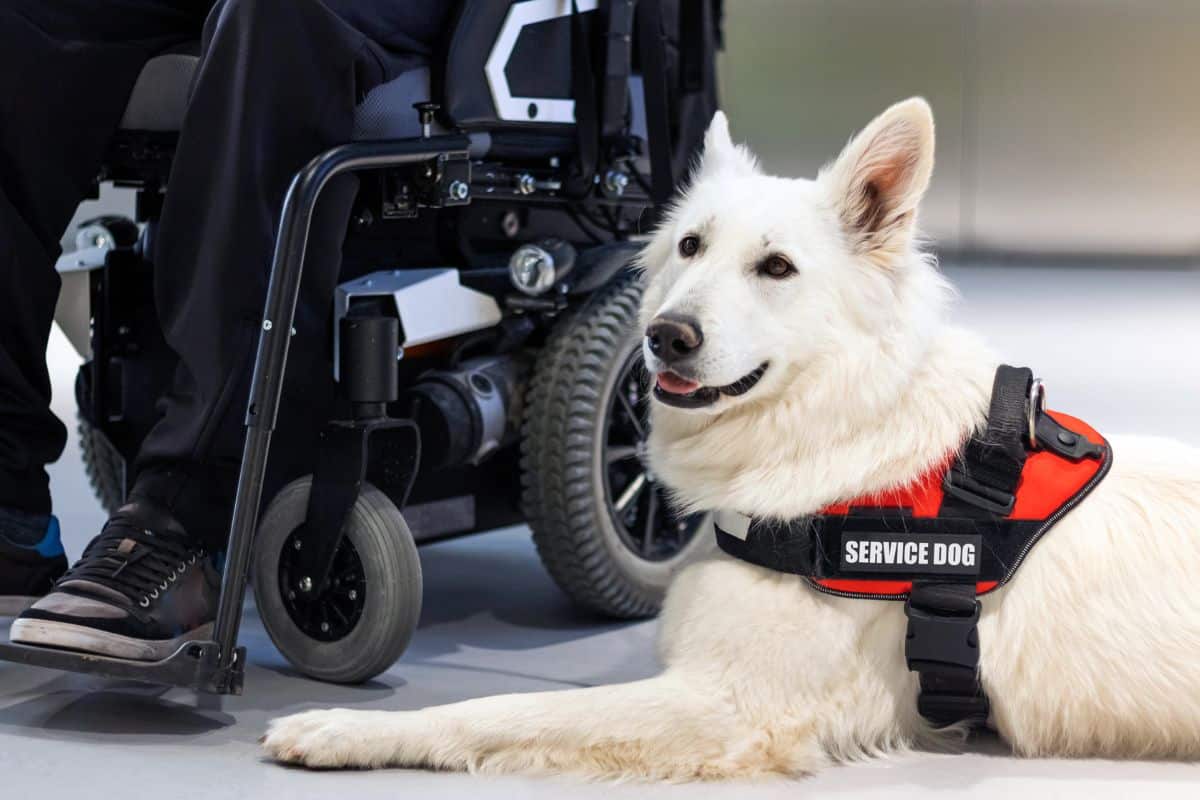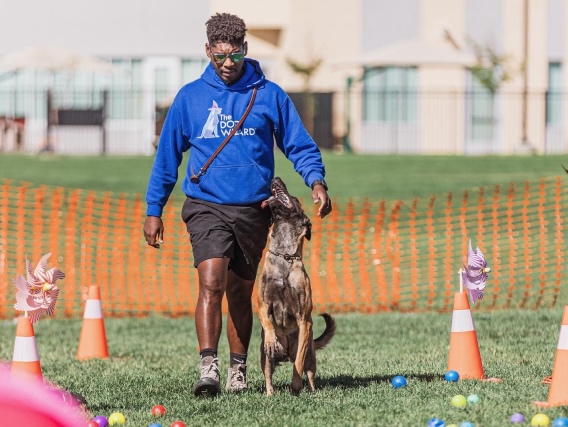The Ultimate Guide to Dog Training: Tips for Every Stage of Your Dog’s Life
The Ultimate Guide to Dog Training: Tips for Every Stage of Your Dog’s Life
Blog Article
Unlock Your Dog's Prospective With Expert Training Insights
Professional training insights disclose that acknowledging interaction signs and employing consistent, positive support can considerably modify your pet's action to different situations. As we check out effective socializing techniques and progressed training methods, one might wonder exactly how these approaches can change not just your dog's behavior, but also your general partnership.
Comprehending Your Canine's Behavior

Additionally, understanding usual behavioral issues such as aggressiveness, stress and anxiety, or excessive barking can help proprietors address problems proactively. Rather of penalizing undesirable habits, it is a lot more reliable to identify the underlying causes and work in the direction of changing those triggers. A canine that barks excessively may be seeking interest or responding to ecological stimulations.
In addition, each dog is distinct, influenced by elements such as breed, age, and past experiences. Consequently, observing and recognizing your pet's specific behavior is key to developing a training approach that aligns with their temperament. By promoting this understanding, owners can produce a more harmonious living setting, boost their dog's learning experience, and ultimately reinforce their bond.
The Relevance of Uniformity
Preserving consistency in training is vital for attaining wanted results and strengthening positive behaviors in dogs. When training sessions adhere to a predictable structure, pets are more probable to understand what is anticipated of them. This clearness promotes a sense of safety and helps to establish a strong bond in between the pet dog and the fitness instructor.
Irregular cues or commands can puzzle pets, resulting in aggravation for both the animal and the trainer. If a command is often awarded and other times overlooked, the pet might come to be unsure regarding just how to respond. This disparity not just hampers the discovering procedure yet can likewise accidentally motivate undesirable behaviors.
Furthermore, uniformity extends beyond verbal commands to include body movement and tone. Dogs are highly attuned to human behavior, and inconsistencies can threaten their count on. For effective training, all household members and handlers ought to be straightened in their method, utilizing the very same commands and reinforcement techniques.
Eventually, consistency in training advertises a structured learning environment, making it possible for pets to thrive and respond positively to commands. This fundamental concept is vital for establishing well-behaved, positive, and loyal buddies.
Techniques for Efficient Training
Effective training methods build on the foundation of consistency established in previous sessions. Using favorable reinforcement is one of the most efficient methods for encouraging desired habits. This entails gratifying your pet dog with deals with, praise, or playtime right away after they do the desired activity, thus producing a strong association between the behavior and its favorable result.
Timing is essential; rewards need to be given immediately to strengthen Get the facts the connection. Furthermore, using constant and clear commands will certainly assist your pet comprehend what is anticipated of them. Select easy, distinct signs and prevent making use of multiple expressions for the exact same activity.
Including brief, interesting training sessions can likewise boost retention and avoid monotony. Go for sessions lasting 5 to 10 mins, gradually boosting the duration as your dog becomes more adept. Varying the training environment can assist generalise discovered behaviors, ensuring your dog can do commands in different contexts.
Finally, perseverance is crucial. Every pet learns at their very own rate, and encouragement fosters a favorable discovering experience. By using these methods consistently, you can unlock your dog's complete potential and enhance the bond between you and your canine friend.
Socializing and Its Benefits
Socialization is an essential aspect of a pet's advancement, substantially affecting their actions and character. It encompasses the procedure of subjecting a dog to a range of people, settings, seems, and other animals. This direct exposure aids canines learn to navigate the intricacies of their surroundings, fostering self-confidence and flexibility.
Correct socialization lowers the probability of fear-based actions and hostility, which can develop from unknown scenarios. A well-socialized pet dog is most likely to display positive communications with both humans and other pets, resulting in a much more enjoyable experience for every person entailed (Dog training). Socialization plays an essential duty in boosting a dog's general top quality of life, enabling them to participate in tasks and outings without extreme anxiety.
The important period for socializing happens in between three and link twelve weeks old, although recurring socialization is advantageous throughout a pet dog's life. Taking part in monitored playdates, pup classes, and progressive direct exposure to brand-new experiences can facilitate this procedure. By prioritizing socializing, dog proprietors can grow a well-shaped companion, geared up to take care of numerous scenarios with poise and calmness, eventually bring about a Clicking Here harmonious partnership between the canine and its atmosphere.
Advanced Training Methods
A well-socialized pet is much better prepared to participate in sophisticated training methods, which can even more fine-tune their skills and enhance their overall habits. Advanced training techniques, such as clicker training, agility, and scent work, need a solid foundation of fundamental obedience and social skills. These approaches concentrate on creating a canine's cognitive capabilities, boosting their focus, and promoting a much deeper bond in between the canine and trainer.
Dexterity training tests canines both literally and emotionally, promoting control, self-confidence, and analytical abilities. This can be a thrilling means for pets to burn off power while improving their responsiveness to commands.
Scent work use a pet dog's natural reactions, boosting their olfactory capabilities while constructing their concentration and persistence. Including these advanced training techniques not just stimulates a canine's mind but additionally contributes to their psychological health. Inevitably, involving in sophisticated training can transform a well-socialized dog right into a well-rounded companion, efficient in navigating complicated atmospheres easily and self-confidence.
Verdict
In final thought, unlocking a pet dog's capacity via professional training requires a thorough understanding of habits, consistency in methods, and reliable socializing methods. By prioritizing these components, an all-round and meeting partnership between canine and owner can be developed, ultimately leading to a mannerly companion and an unified coexistence.
As we explore efficient socializing techniques and progressed training techniques, one might question just how these strategies can change not just your pet's behavior, but also your general connection.
By prioritizing socializing, pet dog owners can cultivate a well-shaped buddy, geared up to manage numerous scenarios with poise and composure, inevitably leading to a harmonious relationship in between the dog and its setting. (Dog training)
A well-socialized dog is better prepared to involve in innovative training approaches, which can additionally improve their skills and boost their general habits. These methods concentrate on creating a pet's cognitive capacities, improving their emphasis, and fostering a much deeper bond in between the canine and handler.

Report this page